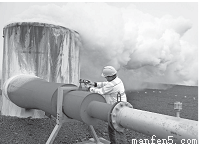题目内容
Traveling in Vietnam was like visiting a mysterious neighbor. You have lived next door to each other for years but know very about what happened on side of the fence.
I travelled there last August. A(n) 180-kilometre trip from a Chinese border town to Hanoi, the capital of Vietnam, an adventurous eight hours. That’s the country still doesn’t have a modern expressway system. The major passage going through the country is only a two-way road. , many areas are mountainous.
Vietnamese drivers are and fearless. They compete with each other at full speeds no matter how scared the feel. When the bus shook us violently for the hundredth time, the driver made a to make us feel better. “See, this is just a(n) Vietnamese people give you, a free massage(按摩) service.”
It was midnight I reached that hotel. Switching on the television, I was by something: All the in the TV plays spoke in the same voice. , modern Korean plays and historical Chinese plays are with the Vietnamese. But it seemed they didn’t have enough to dub(为……配音)all these programs. So, the same boring woman appears every TV play to speak for the roles. The next morning when I opened the window, I found myself in a huge “ ”. The buildings in the streets were in all kinds of colors you can imagine. Vietnamese are allowed to their houses as they like. Each one was different. The large number of colors brought the city alive.
1.A. little B. much C. a lot D. few
2.A. another B. other C. either D. the other
3.A. long B. simple C. pleasant D. easy
4. A. took B. spent C. paid D. devoted
5.A. why B. when C. because D. where
6.A. Therefore B. However C. Also D. Otherwise[来源
7.A. wonderful B. impatient C. careful D. helpless
8.A. passengers B. policemen C. drivers D. passers-by
9.A. story B. joke C. promise D. statement
10.A. gift B. pleasure C. competition D. surprise
11.A. that B. until C. when D. while
12.A. excited B. embarrassed C. disappointed D. amazed
13.A. actresses B. actors C. characters D. channels
14.A. At present B. To be honest C. Sure enough D. Of course
15.A. satisfied B. received C. content D. popular
16.A. time B. budget C. people D. space
17.A. beside B. under C. over D. behind
18. A. film B. garden C. book D. cup
19.A. put B. set C. dressed D. filled
20.A. rent B. make C. live D. paint
 阅读快车系列答案
阅读快车系列答案

